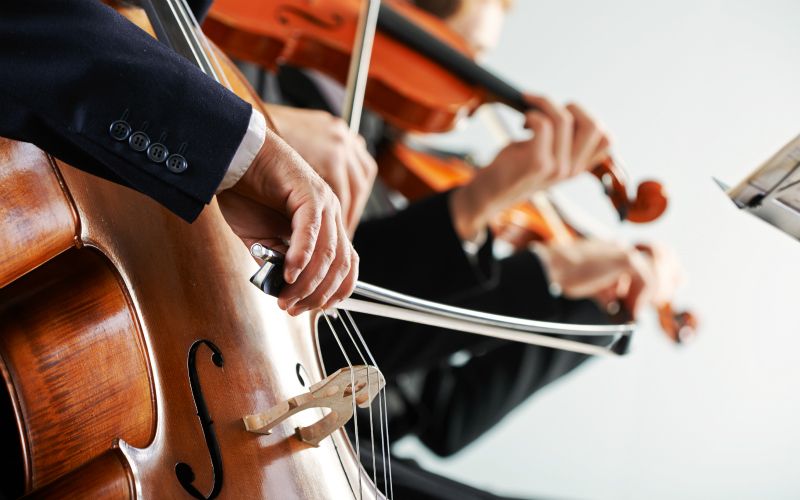
A professional viola player, employed by the Royal Opera House in Covent Garden, London raised an action for damages after he sustained an injury to his hearing during a rehearsal. Mr Goldscheider alleged he was exposed to excessive noise and claimed damages for acoustic shock, a condition with symptoms including tinnitus, hyperacusis and dizziness.
When the claimant started with the ROH in 2002 he was provided with custom moulded earplugs. A 9dB filter was agreed to be sufficient protection for his work. On 1 September 2012, the claimant was seated directly in front of the trumpets within the brass section and the space between the seating was limited. The brass section consisted of 18-20 musicians. Mr Goldscheider initially wore his 9dB earplugs but switched for sections of the rehearsal to 28dB earplugs which he carried with him. During the rehearsal the noise levels exceeded 130 decibels, roughly equivalent to that of a jet engine. Following the rehearsal Mr Goldscheider complained of pain in both ears, particularly on the right side, together with increased dizziness. He was diagnosed as suffering from acoustic shock and was prescribed medication but his symptoms did not improve. He became very sensitive to high frequency sounds. He has been unable to continue working.
The claimant plead breaches of the Control of Noise at Work Regulations 2005 (“the 2005 Regulations”) which the ROH denied. They argued that :-
- they were unable to eliminate the noise at source but took all reasonable practicable steps to reduce noise exposure to a low level;
- Mr Goldscheider had developed an entirely natural hearing condition, known as Meniere's disease; and
- a balance had to be struck between preserving the artistic integrity of the music while doing everything possible to reduce the risk of damage to musicians' hearing that was an inevitable feature of playing long-term in an orchestra.
Mrs Justice Davies stated “The reliance upon “artistic value” implies that statutory health and safety requirements must cede to the needs and wishes of the artistic output of the opera company, its managers and conductors. Such a stance is unacceptable, musicians are entitled to the protection of the law as is any other worker.”
The Court determined that the ROH’s risk assessment was insufficient as it did not include specific consideration of the level, type and duration of exposure including peak sound pressure. Further, the ROH did not inform the orchestra players of the mandatory requirement to wear hearing protection when the noise was likely to be above the upper levels. The ROH were found to have breached their duties under the 2005 Regulations.
The ROH plead that the claimant was contributory negligent in that he failed to listen to instruction or following training and information provided by his employer in relation to noise exposure; failed to inform his employers about any issues with his hearing protection; failed to alert the ROH of the excessive noise levels at rehearsal on the day of the accident; and continued with the rehearsal knowing that it might cause him harm. The judge indicated that whilst Mr Goldscheider was aware of the noise levels by the afternoon it was the “ethos amongst professional musicians employed to play in the orchestra to be ... professionals. As such a musician would not easily leave a rehearsal and would attempt to deal with any difficulties that arose”. There was no finding of contributory negligence.
Damages are still to be assessed.
This is the first reported decision where a Court has explored the music industry’s obligations towards their employees, particularly in relation to their hearing and highlights that every employer must take account of the duties owed to their employees to keep them safe from risks likely to cause personal injury. No-one is exempt.
If you have suffered an injury resulting in damage to your hearing, please contact Stephanie Watson on 0131 297 5988 or swatson@thorntons-law.co.uk. Alternatively, contact the Personal Injury Team on 0800 731 8434 who will be pleased to assist further.
